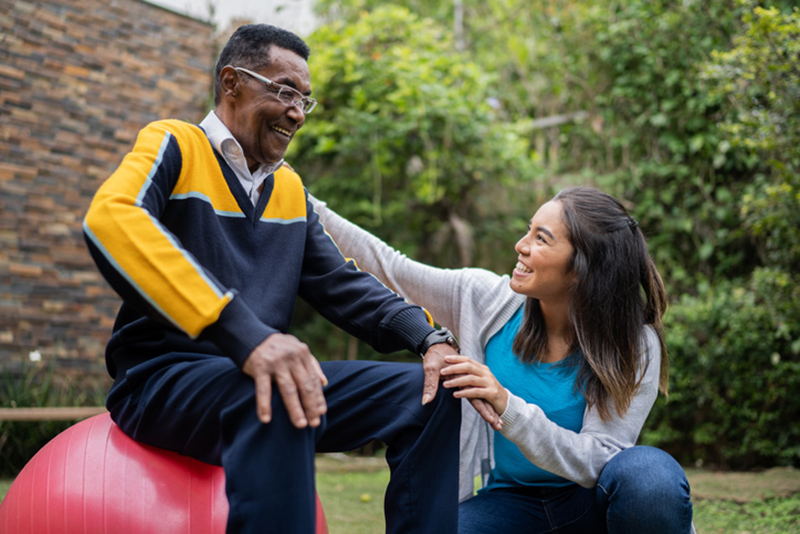
Finding help for stroke patients at home is as easy as calling Hearts at Home In-Home Care.
Having a stroke is a scary, unexpected experience. The effects can range from minimal to life-altering, but a very important factor is clear: follow-up care is a necessity. Thankfully, getting help for stroke patients at home is an option. If you are taking care of a family member following a stroke, below are some of the ways you can help guarantee the most effective recovery.
How Can I Help a Person at Home After a Stroke?
A critical first step is communicating with the person’s healthcare provider to find out as much information as possible. Learn what might have triggered the stroke, what the likely outcome is, and what they are recommending in terms of a treatment and rehabilitation plan. It’s also a good idea to ask for information and resources from the doctor about strokes. Knowledge will be integral in your ability to provide the best assistance.
Additionally, our home care professionals recommend these guidelines:
- Begin a diary. A plain notebook or digital document is all you will need. Start with a baseline entry regarding the person’s physical and emotional condition, any medicines being taken, sleeping and eating patterns, etc. It’s normal for new stroke symptoms to surface months after a stroke, and any changes should be brought to the doctor’s attention as quickly as possible.
- Offer motivation. Sticking to the doctor’s recommended lifestyle changes isn’t always easy. It is likely there will be a rehabilitation exercise routine to follow, as regular physical exercise is an effective recovery tool for the brain and the body. Motivate the person to engage in these activities exactly as instructed. Joining in to exercise with the person is often an effective way to ensure compliance with doctor’s orders.
- Refrain from taking control. You might be inclined to want to do as much as possible for the person, so they can rest rather than overexert themselves. Still, it is very important for the person to do as much independently as possible to be able to maximize recovery. Intervene when absolutely necessary with just enough support to enable them to accomplish a difficult task.
- Show patience. The recovery process post-stroke may take a good amount of time, and there may be a few challenges during this process. The person may also experience pseudobulbar affect, which causes sudden bouts of crying or laughing for no obvious reason. They may also experience anxiety and fear of another stroke occurring, grief, or depression. These types of emotional changes can be upsetting for both of you, but treatment solutions are available to help.
- Take care of yourself. Providing care for someone you love after a stroke can be emotionally and physically draining. Be sure to set appropriate boundaries to avoid caregiver stress and burnout. Solicit the assistance of other family members, friends, or a skilled caregiver to allow you time to step back to tend to your own health and wellbeing.
The Crucial Role of Home Care Post-Stroke
An in-home caregiver should be an integral part of a person’s recovery following a stroke. Some of the many ways a home care provider like Hearts at Home In-Home Care, one of the top Kansas City home health agencies, can help include:
- Assisting with fall prevention as well as other home modification suggestions for enhanced safety and independence
- Offering transportation and accompaniment to medical appointments and procedures
- Running errands, like picking up groceries and prescriptions
- Preparing healthy meals according to any dietary restrictions
- Serving as a friendly companion for conversations, help with engaging in exercise programs, playing fun and mind-stimulating games, etc.
- Assisting with personal hygiene needs
- And a lot more
Contact Hearts at Home In-Home Care, one of the leading Kansas City home health agencies, at 913-440-4209. Find out how our fully trained and experienced caregivers can ensure an easier recovery for someone you love following a stroke.
